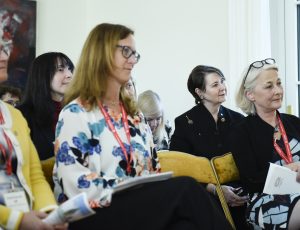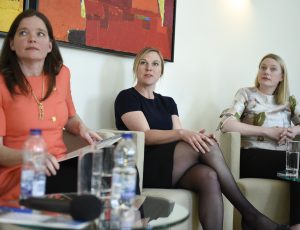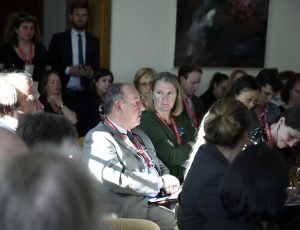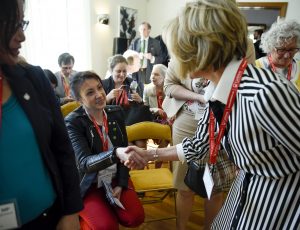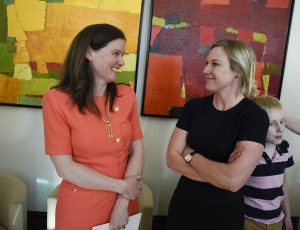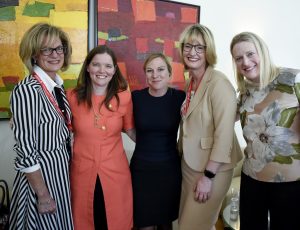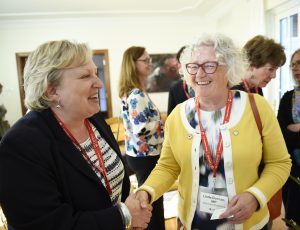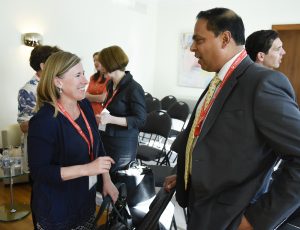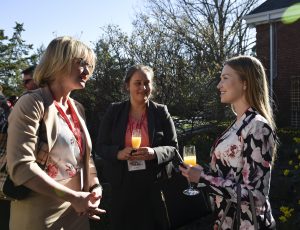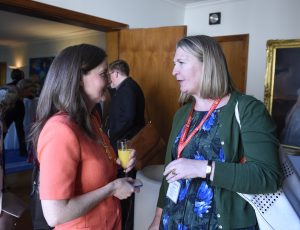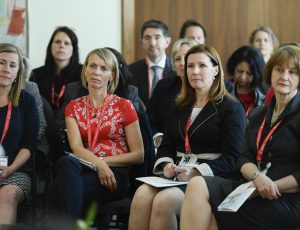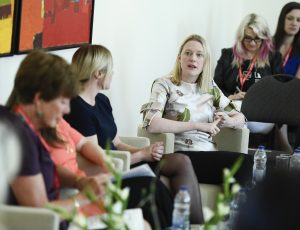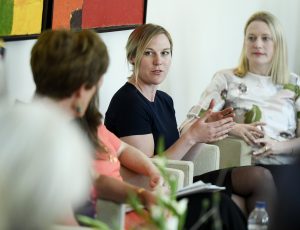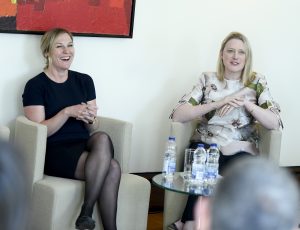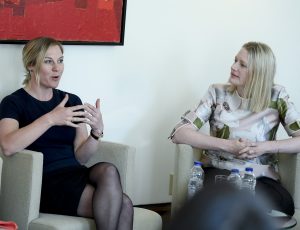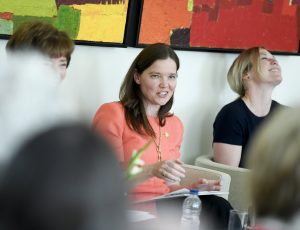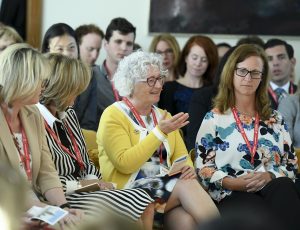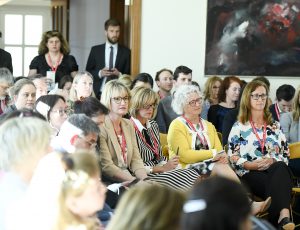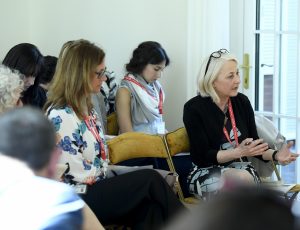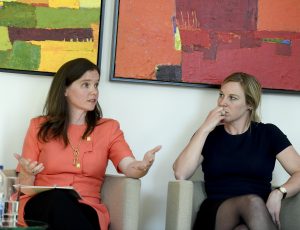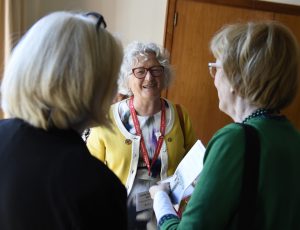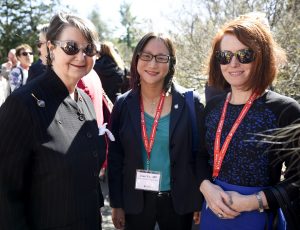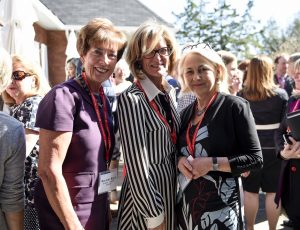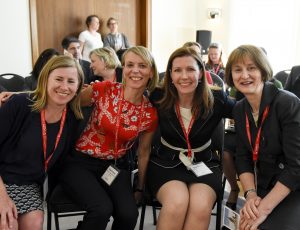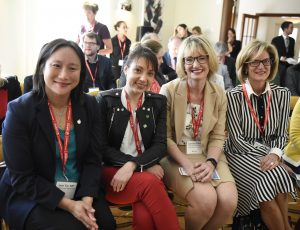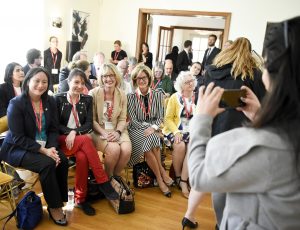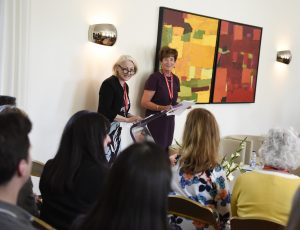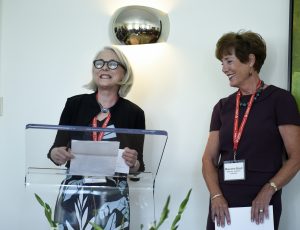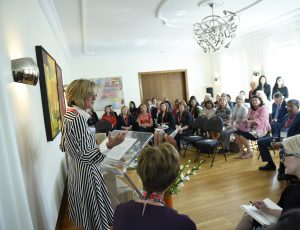Panelists from Carleton, government and business debated the best ways to encourage more women-owned businesses to export their goods and services in an event organized by the Carleton Initiative for Parliamentary and Diplomatic Engagement at the residence of the German Ambassador to Canada, Her Excellency Sabine Sparwasser.
Ambassador Sparwasser told the audience of more than 100 Members of Parliament and Senators, Ambassadors, High Commissioners and other members of the diplomatic community, senior government officials, political staffers, journalists, business representatives, opinion leaders, and Carleton faculty and students that gender equality is a main priority for the G7 and Canadian and German governments.
Pamela Goldsmith-Jones, M.P. and Parliamentary Secretary to the Minister of International Trade, noted that the government was planning its largest ever trade mission for women and advocated for more programs to help facilitate women entrepreneurs.
Ailish Campbell, Chief Trade Commissioner of Canada and Assistant Deputy Minister, Global Affairs Canada, called for mainstreaming women into programs, trade missions, exporter conferences, outreach, tradeshows, and CEO roundtables.
Nicole Verkindt, CEO of OMX, Dragon on Next Gen Den, winner of 2017 Women Entrepreneur Award, said that there was no one solution but that procurement is the most powerful lever that government and corporations have because sales are the most important factor in allowing women to take their business to the next level and export.
Meredith Lilly, Associate Professor and Simon Reisman Chair in International Affairs, Carleton University and former Foreign Affairs and International Trade Advisor to Prime Minister Stephen Harper, said that trade negotiations must be negotiated through a gender lens to ensure that there are hard targets allowing women access to temporary entrance provisions, financial services, and procurement programs.
In response to a question from Maureen Boyd, Director of the Carleton Initiative, who moderated the panel, all panelists agreed that persuasion would not be enough to close the gender gap and it was necessary to set quotas and hard targets.
Dr. André Plourde thanked the panel and offered closing remarks, noting that leadership is the most important factor to catalyze change.
Please click on the following for:
